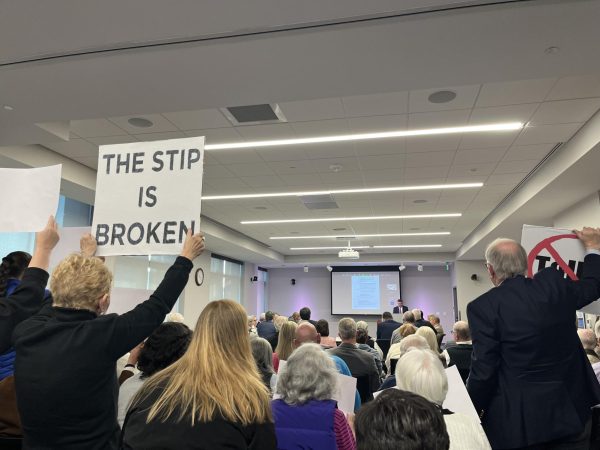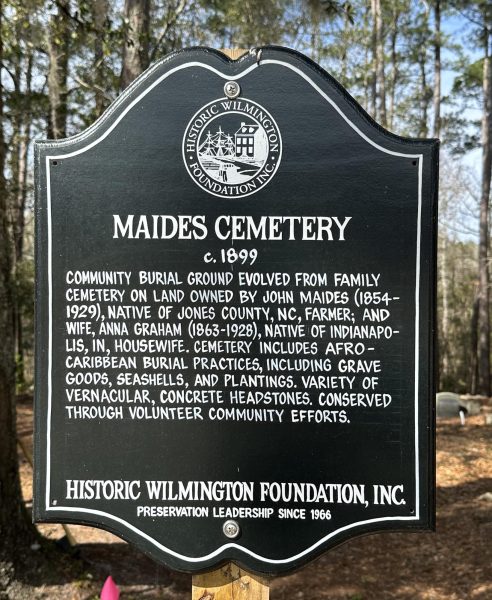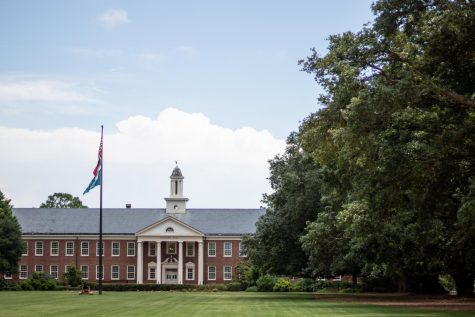The nonsense of the Electoral College continues
November 16, 2012
Now that the battle of the 2012 election is over, let’s take a serious minute to reflect on the bigger, even more historically detrimental issue-the Electoral College.
Most people don’t realize, despite their past and present Obama versus Romney quarrels, that their 2012 vote, and any other presidential votes for that matter, didn’t technically count.
Under the Electoral College system, each state is designated a distinct number of electors who make the final decision. Electors are generally nominated by political parties at State party conventions. Hopefully and usually, their votes reflect the decision of the people in their district.
But what if they don’t?
Yes, our founding fathers and ancestors bravely fought for our independence all those years ago, and trust me, I thank them for it. However, we are not a democracy and never have been. Listen to our glorious pledge of allegiance, “…under the republic for which it stands.” A republic-a representative democracy-although close, is not the “one person, one vote” nation that we like to believe we are.
Electors are not restricted by any federal law to vote in accordance with the popular vote of their state. Therefore, a person’s vote could potentially be useless.
Rarely does this happen, but it could. For example, in 1972, a Virginia elector voted for Libertarian Party nominee John Hospers although the state supported Richard Nixon.
Some states do have laws subjecting faithless electors to fines or disqualification, but none of these laws are reinforced by the Constitution. Similarly, electors can pledge to vote for their party’s candidate, and are thereby bound to a decision. But what if third party candidate Gary Johnson, perhaps magically, took a state majority and those electors were pledged to the Republican nominee? Gary Johnson is screwed.
When electors do side with the popular vote, most states operate on a winner-take-all basis.
In North Carolina, Mitt Romney took only a 50.6 percent popular lead. However, he got all of the state’s electors votes. In retrospect, nearly half the state’s votes were ignored in the final election results.
Only two states, Nebraska and Maine, do not follow this rule.
Despite his North Carolina loss, President Obama took office with a 332 electoral vote majority against Mitt Romney’s 206. Obama only needed 270 out of the 538. It sounds like a decent win. Now, compare the popular vote- Obama’s 62,611,250 versus Romney’s 59,134,475.
The president took approximately 62 percent of the electoral vote, but only about 55 percent of the popular vote. That’s almost a 10 percent difference.
In either scenario, Obama earns the clear victory. However, the votes of Americans are being represented differently, at almost a 10 percent rate.
Think about that in 2016 when you wear your “I Voted” sticker ever so proudly.
Not only are voters being misrepresented, but in four cases the popular vote was completely ignored. The 1824, 1876, 1888, and 2000 presidential winners all took office with an electoral majority despite a popular vote minority.
In 1876, after a dispute between four electors, Rutherford B. Hayes took the presidency with only a plus one majority. However, he lost the popular vote by 300,000 votes.
Whenever there is an electoral vote dispute, Congress basically makes the decision, as we saw in Florida in the appalling 2000 election.
Many advocates for the Electoral College are from small states and claim that the system helps to give them a voice. They’re partially correct. The system developed under a compromise in support of the small states, mostly slave states, during the 1787 Virginia Plan.
But the reality is that there are no more slave states. Thankfully we are no longer concerned about the three-fifths compromise. So why do we still have this?
Alaska’s population is 722,718 and has three electoral votes. Likewise, Iowa houses six electoral votes with a 3,062,209 population. Shouldn’t Alaska, with one-fourth the population of Iowa, have one-fourth the electoral votes?
I guess not.
It’s time to trade this 18th-century system for one that makes sense with our current society. As a new voter, I am ready to have a voice, but I am only ready to have my voice represented fairly.





















